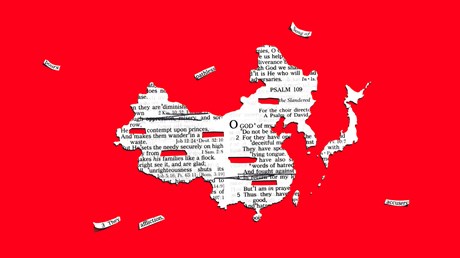Misconceptions about Jesus, Scripture, and salvation prevail.

American evangelicals are moving away from orthodox understandings of God and Scripture. This year’s State of Theology survey revealed the top five misconceptions that US evangelicals hold, as follows:
- Jesus isn’t the only way to God.
- Jesus was created by God.
- Jesus is not God.
- The Holy Spirit is not a personal being.
- Humans aren’t sinful by nature.
CT polled five Christian leaders in China, Hong Kong, Japan, South Korea, and Taiwan to find out whether these modern heresies are also widespread in their respective regions, how believers can address them, and what heresies may be more common in their contexts.
Aaron Chau (name changed for security reasons), a house church pastor in Hubei, China
Heresies in China are quite different from America. Based on this study, American evangelical heresies are greatly influenced by liberalism. In contrast, Chinese heresies are greatly influenced by fundamentalism and superstition.
Most Chinese Christians will accept the authority of the Bible to the point that they have turned the Reformation motto sola Scriptura into “Read the Bible alone.” Unlike how American evangelicals do not believe the Bible is literally true, some Chinese Christians are too devoted to the belief that the Bible is indeed so.
American heresies arise because Christians are highly educated. Chinese heresies occur due to a lack of theological education, which is why heresies are more widespread in rural areas than in cities.
The most influential Chinese Christian heresy is the belief that Christ was born in China and his second coming has literally happened. Eastern Lightning is the cult that created this heresy based on their reading of Matthew 24:27. Another popular heresy, “Two taels of ...
from Christianity Today Magazine
Umn ministry


.gif)

.gif)
.gif)
